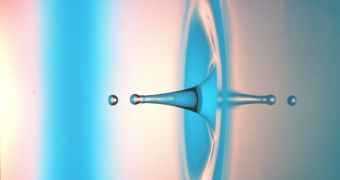Today a research says celery is good for potency, tomorrow will come others to say the contrary, after that another research says that goat milk will grow the boobs of your girl, to find from another study one year later that's not true.
But some studies have turned into real urban hard-like-stone beliefs, like the necessity to drink 8 glasses of water daily, while reading in dim light causes you eye conditions. Most researches say that we use just 10% of our brains and shaving legs will make your hair grow back thicker.
A new research carried on at the Indiana University School of Medicine in Indianapolis and published in the British Medical Journal has combed scientific literature for such "medical myths". Some are ridiculous and clearly untrue, while others are just speculations.
The 8 glasses of water daily found no scientific support. Moreover, there are studies showing that the daily water needs are taken by the body from juice, milk, and even tea or coffee. In fact drinking too much water can cause water intoxication (also known as hyperhydration or water poisoning), which can be lethal for the brain.
It is said that we only use 10% of our brains but the slightest damage suggests that almost any area affects for long specific cognitive, behavioral or vegetative capacities. Brain scanning revealed there are no inactive brain areas.
And here comes the myth of hair and fingernails growing after death. These may be rather an illusion provoked by the skin that gets dehydrated after death and shrinks. The growth of hair and nails requires hormones and food missing in the dead body. Moreover, the growing tissues die with the body and no longer divide.
"Again, illusion may be to blame for the belief that shaving hair causes it to grow back faster, darker, and coarser," co-author Rachel Vreeman told the BMJ.
The new growing hair misses the finer tips of unshaven hair, that's why they look thicker and coarser.
There's no scientific proof that dim light affects eye capacity, and also that mobile phones interfere with the electromagnetic medical devices.
There is the myth that turkey, rich in the tryptophan amino acid, induces sleepiness. But chicken and beef comprise the same levels of tryptophan.
"Any large meal can induce sleepiness because blood flow and oxygenation to the brain decrease, and meals rich in protein or carbohydrate may cause drowsiness. Wine may also play a role," wrote the authors.
"On the flip-side, absence of evidence does not necessarily mean absence of effect. Where reliable evidence becomes really important is in helping people make serious decisions about harms and risks. We are still finding evidence that runs contrary to current practice and what we expect."said Dr David Tovey, editor of Clinical Evidence journal.

 14 DAY TRIAL //
14 DAY TRIAL //